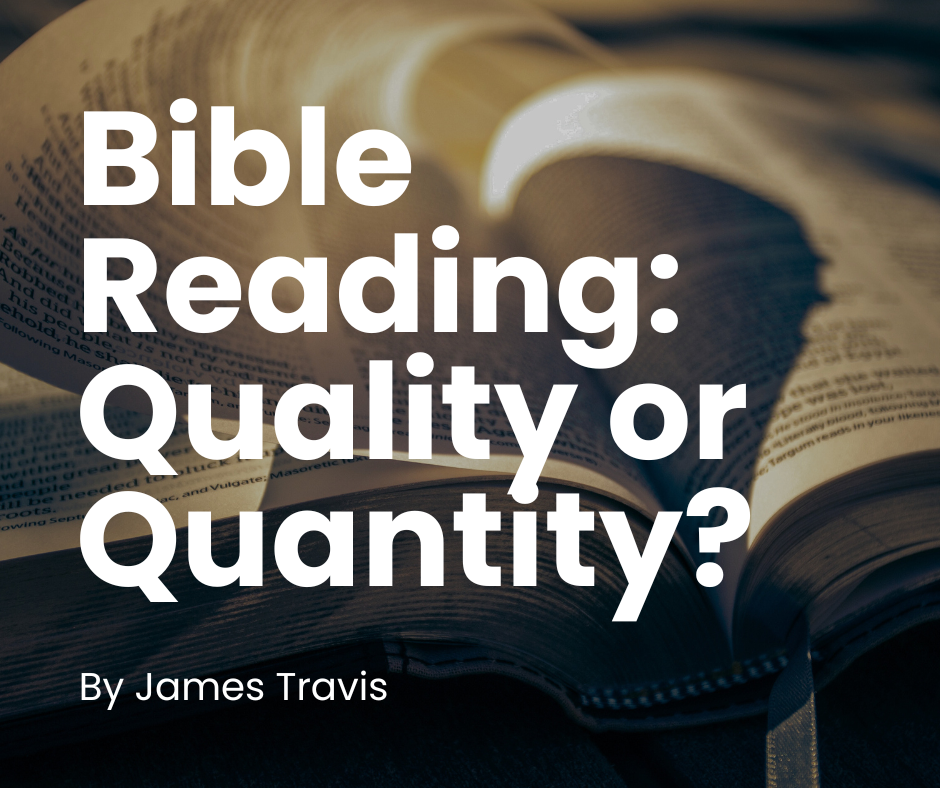
What do the following four people have in common: C.H. Spurgeon, D.L. Moody, Martin Luther, and Jonathan Edwards? If you answered, “They were all great preachers,” you are correct. It certainly wasn’t their shared view on eschatology! Spurgeon was a historical premillennialist, Moody was a dispensational premillennialist, Luther was an amillennialist, and Edwards was a postmillennialist. They aren’t remembered for their eschatology but for their numerous contributions to God’s kingdom. They were faithful! And yet their attempts at faithfully interpreting God’s Word landed them in four different camps of eschatology. We share insights from these quotable preachers, because while the four views are different, they all fall inbounds of orthodoxy. If we can be as gracious with the living today as we are with these saints, we will have great unity.
Let me state at the beginning of this article that I hold to pre-tribulational premillenialism, one of the distinctives of our movement. This post isn’t about changing our #CoreConvictions. It’s about whether Christians should divide over opposing views, choose not to partner with ministries of a different interpretation, or even mock these variances, which can make people feel isolated or lead to a valuable member of the body leaving the church.
Three Views Under One Umbrella of Orthodoxy.
Premillenialism is a strong view that competes against other strong, well-respected views. There are three major views on understanding the millennium: premillennialism, amillenialism and postmillenialism. Each has pieces that are biblically appealing and none distort the core gospel message. If examined closely we’ll see that each view esteems certain areas of the Bible that other views don’t emphasize as much. Pastor John Piper summarizes this thought when he writes:
“Postmillennialism seems to honor the power of the gospel and the promises for the Old Testament for the triumph of God’s people over all the nations. Amillennialism seems to honor the warnings of bleak end times as well as the seamlessness between Christ’s coming and the immediate destruction of death, the removal of the enemies of the cross, and the beginning of the new heavens and new earth. Premillennialism seems to honor the plainest meaning of Revelation 20 and the seemingly literal meaning of many Old Testament promises.”
Each of these three views agrees on the most important detail: the visible and physical second coming of Jesus. It would be bold—and hard to defend—to say only one of these three major views fits within orthodoxy. With the mainstreaming of cults in our culture, we should embrace Christians and churches holding to orthodoxy! Embracing people without necessarily embracing their views is a great example of “endeavoring to keep the unity of the Spirit in the bond of peace” (Ephesians 4:3).
When Division Is Necessary and Encouraged
The doctrines of the deity of Christ, the substitutionary atonement of Jesus on the cross, His resurrection, the Trinity, the inerrancy of Scripture, salvation by grace through faith alone and others are non-negotiable and core to our faith. If any of these truths are perverted or undermined, then our faith is not orthodox. All Christians should cause quite a stir when these untouchable truths are tainted in the slightest way. But when it comes to such a complex topic as “last things,” division should not come so quickly. After all, the problem of division being stirred up in the church on opposing biblical matters is usually caused by people who are divisive, more so than the doctrines being divisive.
A local church needs to be united together in their vision, ministry and priorities. If someone is intentionally dividing the congregation and recruiting followers to a position the church doesn’t hold, they need to be dealt with (Titus 3:9-11) for the sake of the church’s unity. The curious Christian who is exploring and arriving at another view and discussing it respectfully in the right settings, is a different scenario.
Humility When There Can Be No Absolute Certainty
The believers in Rome were encouraged to “be of the same mind toward one another” and told to “not be wise in your own opinion” (Romans 12:16). This verse invites a cautious attitude when it comes to opinions for the sake of harmony. Dr. Martyn Lloyd-Jones addressed this topic in a sermon on 1 Corinthians 14:14:
“There is nothing so tragic in certain circles as the way in which men fail to differentiate between that which is of the essence of the faith and certain other matters about which there can be no certainty. You cannot, I am told, be a member of the World Fundamentalist Association unless you believe in the ‘Premillennial’ return of our Lord and if you happen to be a ‘Postmillenarian’ you cannot be a Christian! If you are an ‘Amillenarian’ you are just unspeakable. There you have an illustration of the importance of differentiating between the essence of the faith and the interpretation of a particular matter about which there has always been a difference of opinion. There is the same difference of opinion as to when the rapture of the saints is to take place. Men separate from each other about matters of that nature, where there is no certainty, and where there can be no certainty, though the return of the Lord is certain. Who can decide who is right, whether those who hold the Premillennial, or those who hold the Postmillennial view? I could mention great names on both sides, equally expert theologians. Surely these are matters where there can be a legitimate difference of opinion. Let us bear in mind the adage: ‘In essentials, unity; in non-essentials, liberty; in all things, charity.’”
United for Greater Goals than Hermeneutics
Paul, exhorting believers to have “no divisions” in 1 Corinthians 1:10-13, addressed inappropriate reasons for dividing by saying, “each of you says, ‘I am of Paul,’ or ‘I am of Apollos,’ or ‘I am of Cephas,’ or ‘I am of Christ.’ Is Christ divided? Was Paul crucified for you?” Paul disapproved of taking sides because it divided the body of Christ. They had lost the focus of what unified them in Jesus. I wonder if by application we can say that God wants less of us saying, “I am of Premillenialism” or “I am of Amillenialism.” Would Paul say today, “Was eschatology crucified for you?”
Now don’t hear what I’m not telling you. I’m not saying that eschatology is unimportant. The imminency of Jesus’ return is a great motivating factor for purity and evangelism. But maybe there is a reason that the gospel message is given more space in the Bible and is simple to comprehend when compared to what God has revealed about the “last things.”
If our greatest goal is to win the lost and build the church, then we have more than enough common ground to unite and link arms with those of opposing “end times” views. Let’s have conviction for what we believe, but the more respectful (Colossians 3:14) we are of other views, the more likely others will want to serve alongside us.
When dealing with “end times” views that fall within orthodoxy, the only concern should be “divisive people.” Perhaps the study of “last things” should be one of the “last things” we separate over.
Recommended Links:
• For a great example of how to discuss different views on eschatology in love:
https://www.desiringgod.org/conference-messages/an-evening-of-eschatology
• For an example of how another denomination keeps unity while allowing variation:
https://www.bpnews.net/31963/end-times-scholars-differ-on-what-bible-says-about-subject and https://www.sbclife.net/Articles/2014/06/sla10









